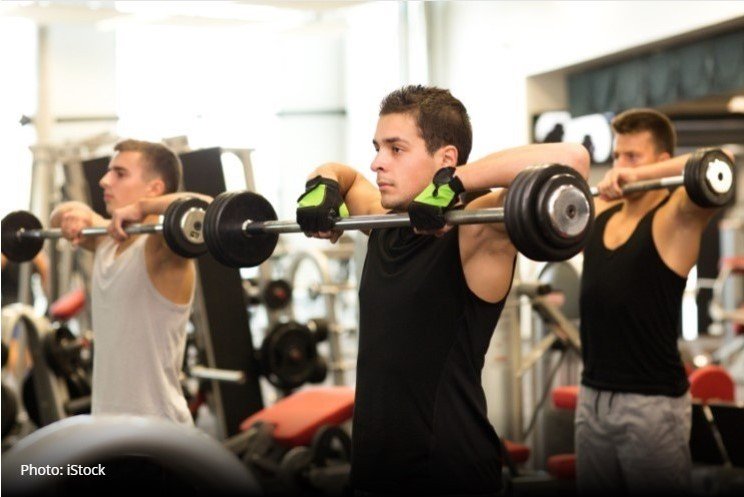Nutrition education and guilt focus potent interventions to prevent doping, study finds – NutraIngredients.com
Or wait…
Sign in Register Sign out My account
News
Research
Regulation & Policy
Manufacturers
Suppliers
Markets and Trends
Views
Promotional Features
Site Archive
Multimedia
Sectors
Supplements
Botanicals
Functional foods
Whole foods
Dairy
Baked goods, snacks & sweets
Beverages
Sports Nutrition
Infant and children's nutrition
Medical Nutrition
Site Archive
Multimedia
Trends
COVID-19
Health claims
Probiotics
Financial plays
Botanicals
Phood
Protein
Sustainability
Personalised nutrition
Site Archive
Multimedia
Resources
Type of resources
Health
Type of resources
Events
Online Events
Editorial Webinars
Shows & Conferences
All Events
Events
Reports
Podcast
By Kavitha Sivasubramaniam
17-Dec-2021 – Last updated on 16-Dec-2021 at 16:06 GMT
Related tags: doping, Nutrition, Education
function sanitize_gpt_value2(gptValue)
{
var vOut=””;
var aTags = gptValue.split(‘,’);
var reg = new RegExp(‘\W+’, “g”);
for (var i=0; i < aTags.length; i++)
{
vOut += aTags[i].trim().replace(reg, '-').substring(0,40);
if(i!=(aTags.length-1))
vOut +=', ';
}
vOut = vOut.toLowerCase();
return vOut;
}
$(document).ready(function() {
dataLayerNews = {};
dataLayerNews.related_tags = sanitize_gpt_value2("doping, Nutrition, Education");
dataLayer.push(dataLayerNews);
});
The research, published in Psychology of Sport and Exercise, recommends the psychological intervention be coupled with nutritional-based information that also includes doping, doping control processes, into a single programme by sports watchdogs.
“We found that appealing to athletes’ sense of ‘future guilt’ through psychological intervention was a powerful way of persuading sportspeople to steer away from doping,” says Project leader Maria Kavussanu, Professor in Sport & Exercise Psychology at the University of Birmingham.
“We focussed on psychological factors that have been empirically linked to doping — emotions. This social cognitive approach was as important in reducing doping likelihood as educating athletes about the harms of doping, the risks of supplements, and the importance of whistle blowing.”
Led by the University of Birmingham, the two six-month randomised trials involved a screening survey carried out among 934 eligible participants in the UK and Greece. A total of 208 athletes was selected from 19 sports clubs in both countries.
Athletes were assigned either psychological or educational intervention at random, which involved six one-hour, small group sessions over a six to eight-week period.
They were measured on doping likelihood, anticipated guilt, moral disengagement, and self-regulatory efficacy.
The psychological intervention concentrated on personal choice and emotions and personal choice, while the education programme focused on the health risks associated with doping.
Participants involved in the trial talked about various athletes to heighten their understanding of the feelings associated with doping, while researchers considered the justifications given by those doping and highlighted the consequences for others including friends and family.
Participants discussed the athletes’ stories — enhancing their understanding of the emotions linked to doping.
Researchers explored the justifications athletes use for doping (moral disengagement) and drew attention to the consequences doping has for others — whether family, friends, teammates or other competitors.
The results showed that the outcome was the same in both countries. Although the psychological intervention had a greater impact from pre to post, at the two-month follow up stage its effects were similar to those involving educational intervention.
To conclude, the researchers highlighted, “Targeting psychological variables in anti-doping interventions should aid our efforts to prevent doping in sport.”
“Effective interventions must focus on preventing rather than detecting doping,” adds Professor Kavussanu.
“We believe that targeting psychological variables in anti-doping interventions should help the regulatory authorities’ efforts to stamp out doping in sport.”
In February, industry group Specialised Nutrition Europe approved the publication of the first European wide standard to combat doping in food supplements and sports nutrition, describing it as a ‘stepping stone’ in providing better consumer information.
Additionally, in October 2020, a joint study carried out by the University of Birmingham and Canterbury Christ Church University found that athletes using sports supplements were more relaxed in their attitudes to doping compared to those who stick to foods.
Source: Psychology of Sport and Exercise
Published online: 10.1016/j.psychsport.2021.102099
Title: “A psychological intervention reduces doping likelihood in British and Greek athletes: A cluster randomized controlled trial.”
Authors: Maria Kavussanu, Vassilis Barkoukis, Philip Hurst, Mariya Yukhymenko-Lescroart, Lida Skoufa, Andrea Chirico, Fabio Lucidi, Christopher Ring.
Copyright – Unless otherwise stated all contents of this web site are © 2021 – William Reed Business Media Ltd – All Rights Reserved – Full details for the use of materials on this site can be found in the Terms & Conditions
Related topics: Research, Sports Nutrition, Sports nutrition

Health and wellness trends are opening up new mainstream product development opportunities in the sports nutrition category. However, consumers expect…

Turmacin® is a clean label project-certified, clinically tested, and clinically safe turmeric extract. Turmacin® is rich in Turmerosaccharides® and doesn't…

The UK has the world’s most developed regulatory framework for legal cannabinoids, such as CBD and CBG. With a 2021 market estimated to be worth £690 million…

L-leucine is an essential amino acid and is a part of BCAA (Branched Chain Amino Acid). L-leucine can stimulate protein synthesis in muscle tissues and…
Show more
On-demand webinars
More promotional features



